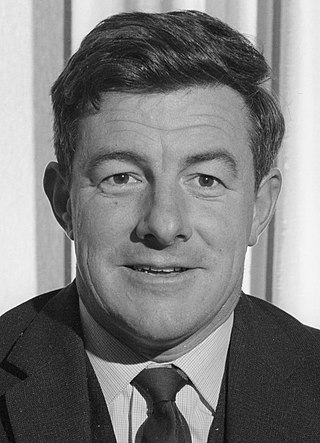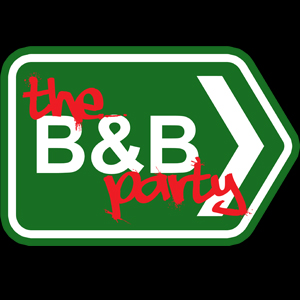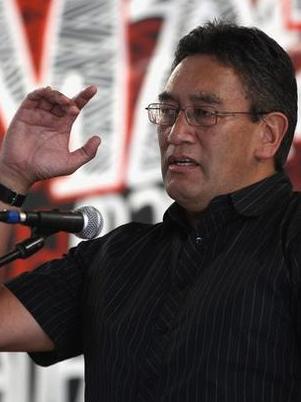
Winston Raymond Peters is a New Zealand politician who has been the leader of New Zealand First since it was founded in 1993. He was re-elected for a fifteenth time at the 2023 general election, having previously been a member of Parliament (MP) from 1979 to 1981, 1984 to 2008 and 2011 to 2020. Peters has served as the 13th deputy prime minister of New Zealand and 25th minister of foreign affairs since November 2023.
New Zealand First, commonly abbreviated to NZ First or NZF, is a political party in New Zealand, led by and identified with veteran politician Winston Peters. The party has formed coalition governments with both major political parties in New Zealand: with the New Zealand National Party from 1996 to 1998 and 2023 to present, and with the New Zealand Labour Party from 2005 to 2008 and 2017 to 2020. New Zealand First currently serves in a coalition government with both National and ACT as part of the Sixth National government.

The 1999 New Zealand general election was held on 27 November 1999 to determine the composition of the 46th New Zealand Parliament. The governing National Party, led by Prime Minister Jenny Shipley, was defeated, being replaced by a coalition of Helen Clark's Labour Party and the smaller Alliance. This marked an end to nine years of the Fourth National Government, and the beginning of the Fifth Labour Government which would govern for nine years in turn, until its loss to the National Party in the 2008 general election. It was the first New Zealand election where both major parties had female leaders.

The McGillicuddy Serious Party (McGSP) was a satirical political party in New Zealand in the late 20th century. Between 1984 and 1999, it provided "colour" to ensure that citizens not take the political process too seriously. The party's logo, the head of a medieval court jester, indicated its status as a joke party.

Aotearoa Legalise Cannabis Party (ALCP), also known as the Cannabis Party, is a political party in New Zealand. It is dedicated to the legalisation of cannabis for medical, recreational and industrial use. It was founded in 1996 and has stood in every general election since, but has never won representation in Parliament. Several of its members have gone on to political success after leaving the party.

Margaret Anne Wilson is a New Zealand lawyer, academic and former Labour Party politician. She served as Attorney-General from 1999 to 2005 and Speaker of the House of Representatives from 2005 to 2008, during the Fifth Labour Government.
Tuariki John Edward Delamere is a former New Zealand politician and athlete. He was elected to the New Zealand House of Representatives in the Te Tai Rawhiti electorate, representing the New Zealand First party, in the 1996 New Zealand general election. He was later a member of the Te Tawharau party, before losing his seat in 1999.

The 43rd New Zealand Parliament was a term of the Parliament of New Zealand. Its composition was determined by the 1990 elections, and it sat until the 1993 elections.
John Michael Cronin MNZM is a New Zealand politician. As of 2008 he is the chairperson of the Bay of Plenty regional council, one of four councillors elected by the city of Tauranga. Previously, he has sought election to Parliament — in the 1993 election, he was the National Party's candidate to win the Tauranga electorate back from former National MP Winston Peters, and in the 1996 election, he led the small Superannuitants and Youth Action party and stood in the Waitakere electorate. He was not successful in either attempt.
Legalise Cannabis Australia, formerly the Help End Marijuana Prohibition (HEMP) Party, is a single-issue Australian political party. It has a number of policies that centre around the re-legalisation and regulation of cannabis for personal, medicinal and industrial uses in Australia.

The 2008 New Zealand general election was held on 8 November 2008 to determine the composition of the 49th New Zealand Parliament. The liberal-conservative National Party, headed by its parliamentary leader John Key, won the largest share of votes and seats, ending nine years of government by the social-democratic Labour Party, led by Helen Clark. Key announced a week later that he would lead a National minority government with confidence-and-supply support from the ACT, United Future and Māori parties. The Governor-General swore Key in as New Zealand's 38th Prime Minister on 19 November 2008. This marked the beginning of the Fifth National Government which governed for the next nine years, until the 2017 general election, when a government was formed between the Labour and New Zealand First parties, with support on confidence and supply by the Green Party.

Tauranga is a New Zealand parliamentary electorate, returning one Member of Parliament to the New Zealand House of Representatives. The current MP for Tauranga is Sam Uffindell of the National Party, who won the seat in the 2022 Tauranga by-election, following the resignation of the previous MP, Simon Bridges of the National Party.

Trevor Albert de Cleene was a New Zealand politician and lawyer. After gaining experience as a councillor with Palmerston North City Council, he was elected to Parliament for the Labour Party in 1981. He was a strong supporter of Rogernomics and was a minister outside cabinet. He resigned his ministerial portfolios in 1988 when Roger Douglas was sacked by David Lange. For his remaining parliamentary career, he was a backbencher known as one of the Three Musketeers. Later, he was a founding member of ACT New Zealand and some years later joined the National Party to help oppose Winston Peters in Tauranga.
Gail Helen McIntosh was a New Zealand politician of the National Party.
Reginald George Boorman was a New Zealand politician of the Labour Party.

The Bill and Ben Party was a New Zealand joke political party formed in 2008 and voluntarily deregistered in 2010. The party's leaders were Jamie Linehan and Ben Boyce of the TV3 satirical sports show Pulp Sport. In the 2008 general election the party secured 0.56% of the vote, outpolling every other party not in parliament prior to the election. It gained the ninth-highest number of votes out of the 19 parties standing for election.

Simon Joseph Bridges is a former New Zealand politician and lawyer. He served as Leader of the National Party and Leader of the Opposition between 2018 and 2020, and as the Member of Parliament for Tauranga from the 2008 election to May 2022, when he resigned.

Cannabis political parties are generally single-issue parties that exist to oppose the laws against cannabis.

The 2011 Te Tai Tokerau by-election was a by-election in the New Zealand electorate of Te Tai Tokerau that was caused by Hone Harawira's resignation from the seat. Prior to resigning his seat, Harawira had resigned from the Māori Party and formed his own Mana Party.

The 2022 Tauranga by-election for the New Zealand House of Representatives was held on 18 June 2022 in the Tauranga electorate, after the sitting member, former National Party leader Simon Bridges, resigned from parliament. The National Party's Sam Uffindell won the by-election in a landslide result, ahead of the Labour Party's Jan Tinetti.















